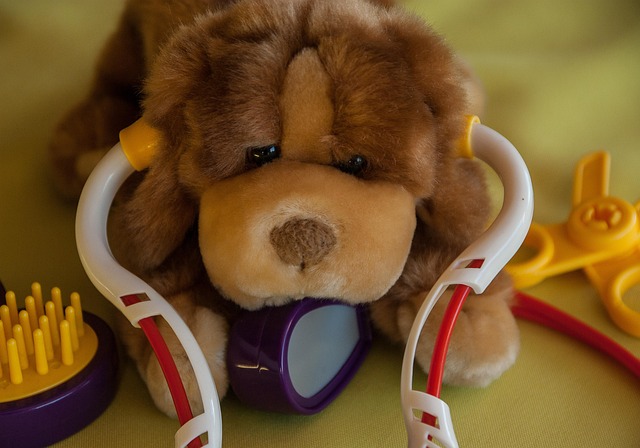Rhinoplasty Surgery in New Jersey: A Closer Look
Rhinoplasty, commonly known as a "nose job," is a surgical procedure that reshapes or reconstructs the nose. In New Jersey, this popular cosmetic surgery has evolved significantly over the years, offering patients a wide range of options to enhance both the appearance and function of their noses. As more New Jersey residents consider rhinoplasty, it's essential to understand the procedure, its benefits, and important considerations before making a decision.

What Are the Common Reasons for Seeking Rhinoplasty in New Jersey?
New Jersey residents pursue rhinoplasty for various reasons, both cosmetic and functional. Cosmetic motivations often include correcting a prominent nasal hump, refining a bulbous or wide nasal tip, straightening a crooked nose, or adjusting the overall size and proportion of the nose to better complement facial features. Many patients seek to address asymmetries or irregularities that have bothered them for years.
Functional reasons are equally important and often involve breathing difficulties caused by structural issues. A deviated septum, enlarged turbinates, or nasal valve collapse can significantly impact quality of life. Rhinoplasty can correct these problems while simultaneously improving appearance. Additionally, some patients require reconstructive rhinoplasty following trauma, injury, or previous unsuccessful surgeries.
Cultural considerations also play a role in New Jersey’s diverse population. Many patients seek ethnic rhinoplasty to refine their nose while maintaining their cultural identity and avoiding an overly “Westernized” appearance.
How Do I Choose the Right Rhinoplasty Surgeon in New Jersey?
Selecting the right surgeon is crucial for achieving optimal results and ensuring safety. Board certification should be your first consideration - look for surgeons certified by the American Board of Plastic Surgery or the American Board of Facial Plastic and Reconstructive Surgery. These credentials indicate specialized training and expertise in nasal surgery.
Experience and specialization matter significantly. Seek surgeons who perform rhinoplasty regularly and have extensive before-and-after galleries demonstrating their work. Pay attention to results on patients with similar concerns and facial structures to yours. A skilled surgeon should be able to show you cases that match your goals and anatomy.
During consultations, evaluate the surgeon’s communication style and approach. They should listen carefully to your concerns, explain the procedure thoroughly, discuss realistic expectations, and present a clear surgical plan. Computer imaging can be helpful but should not be the sole basis for your decision.
Review patient testimonials and seek referrals from previous patients when possible. Check the surgeon’s hospital privileges and ensure they operate in accredited facilities. Finally, trust your instincts - you should feel comfortable and confident with your chosen surgeon.
What Are the Benefits of Undergoing Rhinoplasty in New Jersey?
New Jersey offers several advantages for rhinoplasty patients. The state boasts numerous highly qualified plastic surgeons and facial plastic surgeons, many of whom trained at prestigious institutions and maintain practices in the New York metropolitan area. This concentration of expertise means patients have access to cutting-edge techniques and technologies.
The proximity to New York City provides access to some of the nation’s leading medical centers and specialists, while potentially offering more competitive pricing than Manhattan practices. New Jersey’s medical facilities are generally well-equipped with modern technology and maintain high safety standards.
Beyond medical advantages, undergoing surgery locally means easier access for follow-up appointments and post-operative care. Recovery can be more comfortable when you’re close to home, with familiar surroundings and support systems nearby. Many New Jersey practices offer comprehensive care packages that include pre-operative planning, surgery, and extensive post-operative support.
The state’s diverse population has also led to surgeons developing expertise in various ethnic rhinoplasty techniques, ensuring patients can find specialists who understand their unique anatomical considerations and aesthetic goals.
Understanding the Recovery Process
Recovery from rhinoplasty typically involves several stages, and understanding what to expect can help ensure optimal healing. Initial swelling and bruising are normal and usually peak within the first few days after surgery. Most patients can return to work or school within one to two weeks, though strenuous activities should be avoided for at least a month.
The healing process continues for several months, with final results becoming apparent after a full year. During recovery, patients must protect their nose from injury and follow their surgeon’s specific instructions regarding activity restrictions, medication, and follow-up appointments.
Proper post-operative care significantly impacts results and recovery time. This includes keeping the head elevated while sleeping, avoiding certain medications that can increase bleeding risk, and attending all scheduled follow-up appointments for monitoring and cast or splint removal.
| Practice Type | Average Cost Range | Key Considerations |
|---|---|---|
| Board-Certified Plastic Surgeon | $8,000 - $15,000 | Comprehensive training, hospital privileges |
| Facial Plastic Surgeon | $7,000 - $12,000 | Specialized focus on facial procedures |
| Revision Rhinoplasty | $10,000 - $20,000 | More complex, requires additional expertise |
Prices, rates, or cost estimates mentioned in this article are based on the latest available information but may change over time. Independent research is advised before making financial decisions.
Long-Term Considerations and Expectations
Setting realistic expectations is essential for satisfaction with rhinoplasty results. While the procedure can dramatically improve both appearance and function, it’s important to understand that perfection isn’t always achievable, and individual healing varies significantly. Some patients may require minor revisions to achieve their desired outcome.
The longevity of results depends on various factors, including surgical technique, individual healing patterns, and post-operative care. Most rhinoplasty results are permanent, though natural aging continues to affect all facial structures over time.
Choosing rhinoplasty in New Jersey offers access to skilled surgeons, quality facilities, and comprehensive care within a convenient location. By thoroughly researching surgeons, understanding the procedure and recovery process, and maintaining realistic expectations, patients can achieve satisfying results that enhance both their appearance and quality of life. Remember that rhinoplasty is a significant decision that requires careful consideration and consultation with qualified medical professionals.
This article is for informational purposes only and should not be considered medical advice. Please consult a qualified healthcare professional for personalized guidance and treatment.




